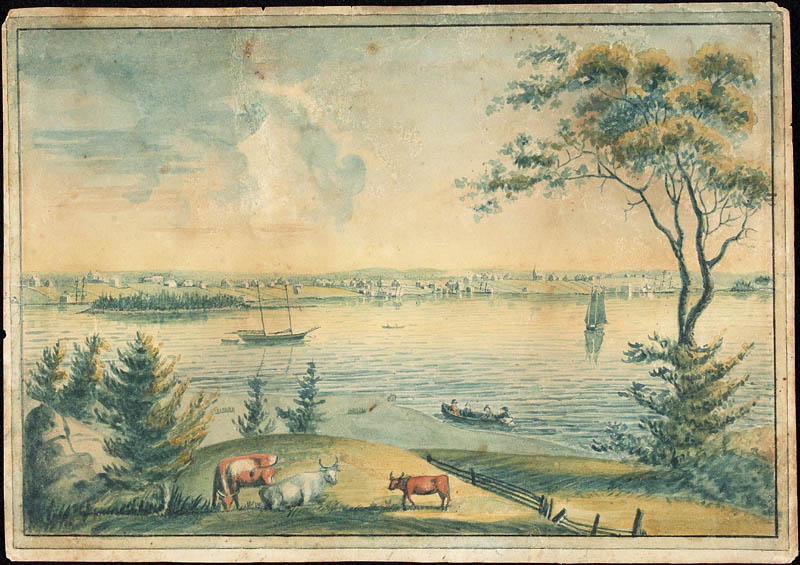|
Arcadia, Nova Scotia
Arcadia is a small community in Nova Scotia, Canada, adjacent to the Town of Yarmouth. It was originally known as "Upper Chebogue" from its location on the upper reaches of the tidal Chebogue River. The name was changed to Arcadia in 1863. While the word itself may be traced back to the Greek name for a land of peace and contentment (see Arcadia (utopia) Arcadia ( gr, Αρκαδία) refers to a vision of pastoralism and harmony with nature. The term is derived from the Greek province of the same name which dates to antiquity; the province's mountainous topography and sparse population of pas ...), the place name was suggested by the ship "Arcadia" built and launched there in 1817. References External links Local history Communities in Yarmouth County {{YarmouthNS-geo-stub ... [...More Info...] [...Related Items...] OR: [Wikipedia] [Google] [Baidu] |
Nova Scotia
Nova Scotia ( ; ; ) is one of the thirteen provinces and territories of Canada. It is one of the three Maritime provinces and one of the four Atlantic provinces. Nova Scotia is Latin for "New Scotland". Most of the population are native English-speakers, and the province's population is 969,383 according to the 2021 Census. It is the most populous of Canada's Atlantic provinces. It is the country's second-most densely populated province and second-smallest province by area, both after Prince Edward Island. Its area of includes Cape Breton Island and 3,800 other coastal islands. The Nova Scotia peninsula is connected to the rest of North America by the Isthmus of Chignecto, on which the province's land border with New Brunswick is located. The province borders the Bay of Fundy and Gulf of Maine to the west and the Atlantic Ocean to the south and east, and is separated from Prince Edward Island and the island of Newfoundland by the Northumberland and Cabot straits, ... [...More Info...] [...Related Items...] OR: [Wikipedia] [Google] [Baidu] |
Yarmouth, Nova Scotia
Yarmouth is a town in southwestern Nova Scotia, Canada. A port town, industries include fishing, and tourism. It is the terminus of a ferry service to Bar Harbor, Maine, run by Bay Ferries. History Originally inhabited by the Mi'kmaq, the region was known as "Keespongwitk" meaning "Lands End" due to its position at the tip of the Nova Scotia peninsula. European settlement The region was visited in 1604 by Samuel de Champlain, who named it "Cap-Fourchu", meaning "forked or cloven cape." The first Europeans to make a settlement on these shores were the French Acadians. They set up a small fishing settlement known as "Tebouque" in the mid 1600s and by 1750 the population was 50 people. During the Seven Years' War, New England Planters settled at what is now the town of Yarmouth in 1759; the grantees were from Yarmouth, Massachusetts and they requested that Yarmouth be named after their former home. Yarmouth was founded on June 9, 1761, when a ship carrying three families arrived fr ... [...More Info...] [...Related Items...] OR: [Wikipedia] [Google] [Baidu] |
Arcadia (utopia)
Arcadia ( gr, Αρκαδία) refers to a vision of pastoralism and harmony with nature. The term is derived from the Greek province of the same name which dates to antiquity; the province's mountainous topography and sparse population of pastoralists later caused the word ''Arcadia'' to develop into a poetic byword for an idyllic vision of unspoiled wilderness. Arcadia is a poetic term associated with bountiful natural splendor and harmony. The 'Garden' is often inhabited by shepherds. The concept also figures in Renaissance mythology. Although commonly thought of as being in line with Utopian ideals, Arcadia differs from that tradition in that it is more often specifically regarded as unattainable. Furthermore, it is seen as a lost, Edenic form of life, contrasting to the progressive nature of Utopian desires. The inhabitants were often regarded as having continued to live after the manner of the Golden Age, without the pride and avarice that corrupted other regions. It ... [...More Info...] [...Related Items...] OR: [Wikipedia] [Google] [Baidu] |

